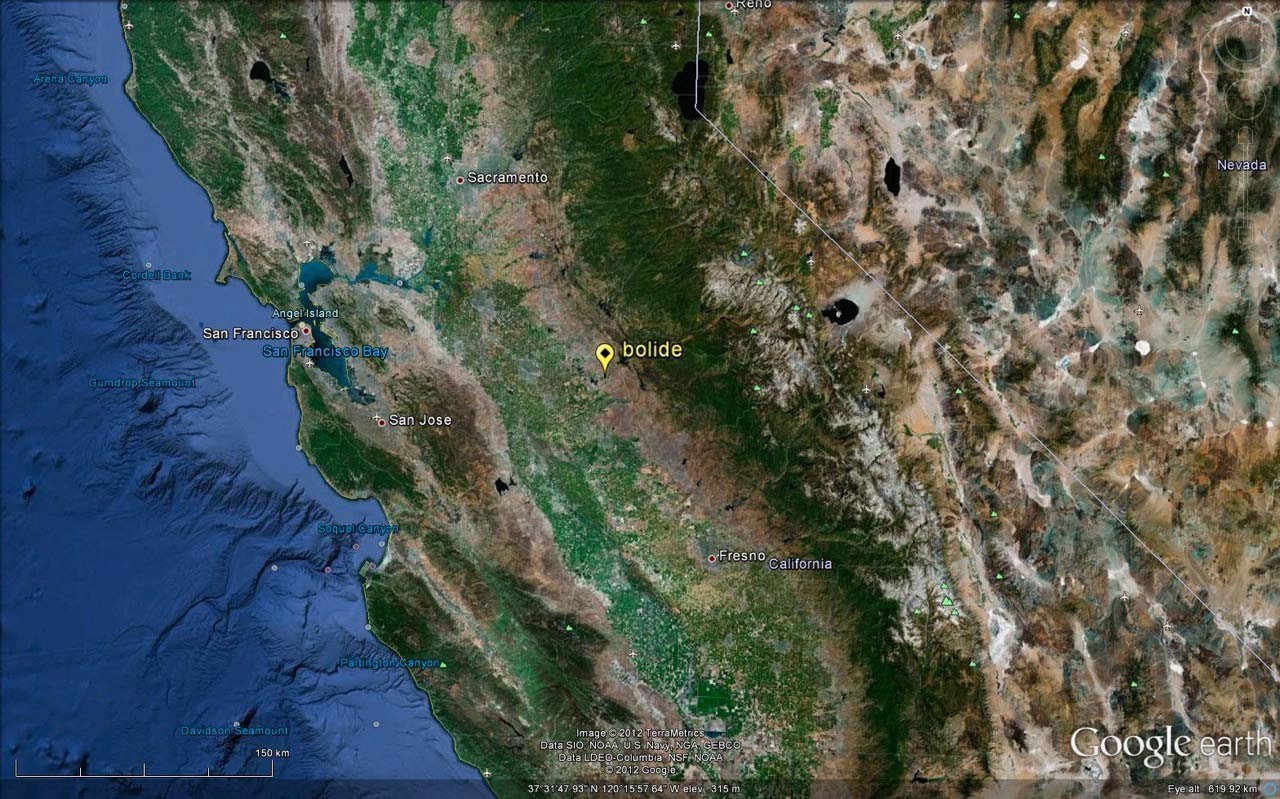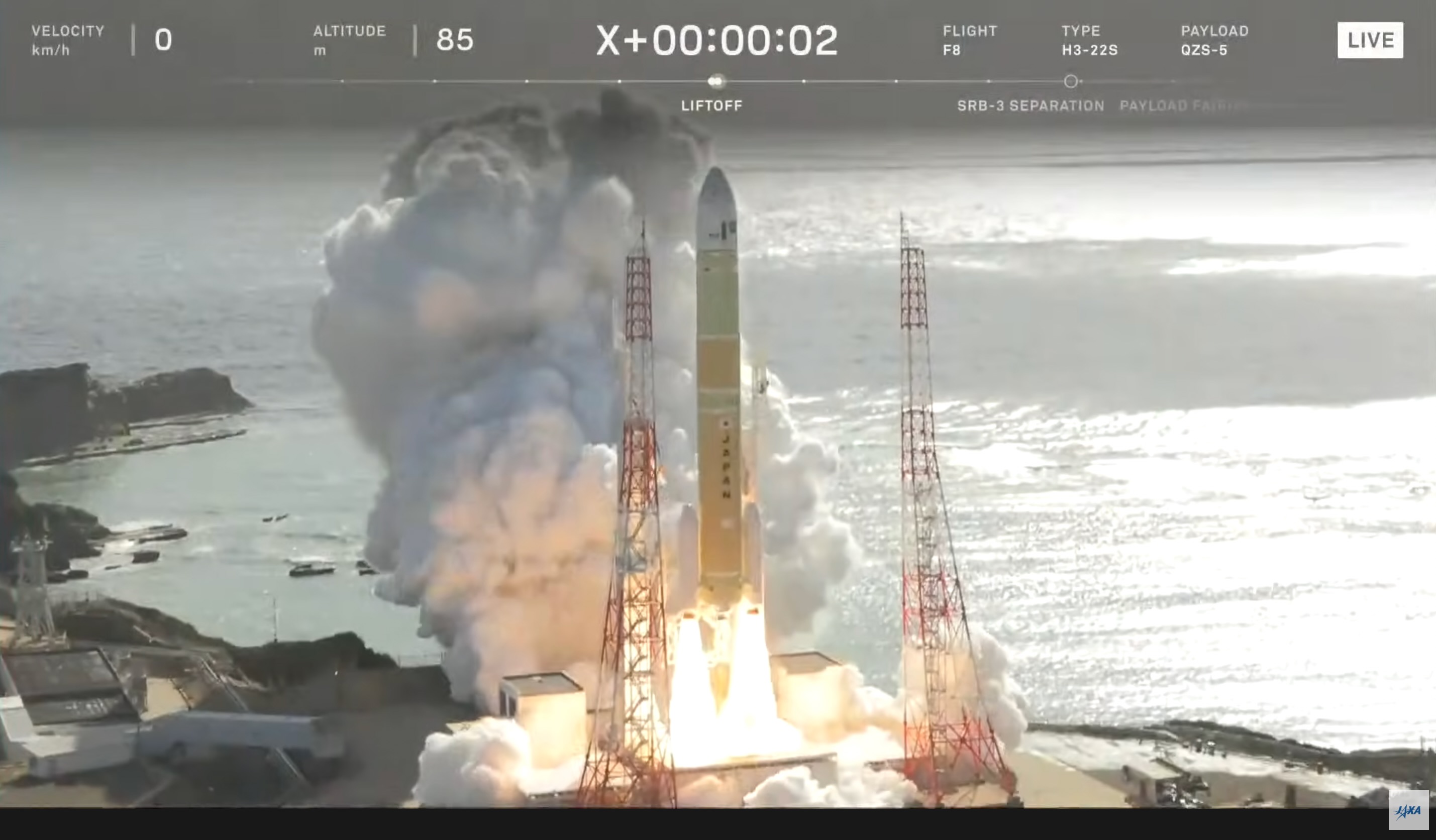Daytime Fireball, Sonic Boom Surprises Calif., Nevada Spectators

Residents in California and Nevada reported hearing a sonic boom and seeing a bright fireball streak across the sky early Sunday morning (April 22), according to news reports.
Experts said the sonic boom and fireball were likely caused by a meteor passing through Earth's atmosphere. The explosive noise shook some homes and startled unsuspecting people across both states, reported the Associated Press.
Calls were placed to local law enforcement agencies after the event, and several eyewitnesses initially thought they had experienced an earthquake.
"It made the shades in my room shake hard enough to slam into the window a couple times," Nicole Carlsen, who lives in the Reno area, told the AP. "I kept looking for earthquake information, but (there was) nothing. I even checked the front of my house to make sure no one ran into the garage. I wish I had seen the meteor."
Bill Cooke, head of NASA's Meteoroid Environments Office at the Marshall Space Flight Center in Huntsville, Ala., is currently analyzing data on the fireball, and made early estimates on the size of the space rock.
"The fact that sonic booms were heard indicates that this meteor penetrated very low in [the] atmosphere, which implies a speed less than 15 km/s (33,500 mph)," Cooke told SPACE.com in an email. "Assuming this value for speed, I get a mass for the meteor of around 70 metric tons. Hazarding a further guess at the density of 3 grams per cubic centimeter (solid rock), I calculate a size of about 3-4 meters, or about the size of a minivan (though much, much more massive)." [Fallen Stars: Famous Meteorite Photos]
Cooke called Sunday's fireball a "big event," based on the amount of energy that was released as the meteor entered the atmosphere.
Breaking space news, the latest updates on rocket launches, skywatching events and more!
"The energy is estimated at a whopping 3.8 kilotons of TNT (about one fourth the energy of the "Little Boy" bomb dropped on Hiroshima), so this was a BIG event," he explained. Cooke added that this does not mean that there was a 3.8 kiloton explosion on the ground in California; instead, " the meteor possessed this amount of energy before it broke apart in the atmosphere above that state."
When would-be meteors are traveling through space, they are known as meteoroids to astronomers. When they enter Earth's atmosphere to create fireballs, they are called meteors. Only fragments that actually reach Earth's surface are called meteorites.
Sunday's sonic boom was so powerful it rattled houses in California and Nevada, according to news reports.
"It knocked me off my feet and was shaking the house," Erin Girard-Hudson of Arnold, Calif., told The Union Democrat of Sonora, Calif., according to the AP. "It sounded like it was next door."
But while the annual Lyrid meteor shower peaked over the weekend, this fireball was probably not related, Cooke said.
"[W]ithout a trajectory, I cannot rule out a Lyrid origin, but I think it likely that it was a background or sporadic meteor," he said.
Greg Giroux of June Lake, Calif., witnessed the fireball from the eastern Sierra, just west of Yosemite National Park. He said the rare daytime fireball created a spectacular light show as it passed overhead.
"This was by far the brightest fireball/shooting star I've ever seen, especially since it was in full sunlight," Giroux told the AP. "After the flash, it broke up into pieces, then I lost sight of it as it went behind a mountain."
Editor's Note: If you snapped a photo of the fireball and would like to share it with SPACE.com for a possible story or gallery, please contact managing editor Tariq Malik at tmalik@space.com.
You can follow SPACE.com staff writer Denise Chow on Twitter @denisechow. Follow SPACE.com for the latest in space science and exploration news on Twitter @Spacedotcom and on Facebook.

Denise Chow is a former Space.com staff writer who then worked as assistant managing editor at Live Science before moving to NBC News as a science reporter, where she focuses on general science and climate change. She spent two years with Space.com, writing about rocket launches and covering NASA's final three space shuttle missions, before joining the Live Science team in 2013. A Canadian transplant, Denise has a bachelor's degree from the University of Toronto, and a master's degree in journalism from New York University. At NBC News, Denise covers general science and climate change.
